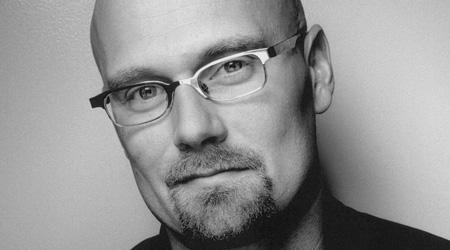This time we bring Ole Christian Madsen to the fore, the director who challenged the image of a nation in the WWII drama "Flame & Citron", a film that held first place on the admissions chart in 2008. Madsen is now working on his third relationship drama "Superclasico", scheduled for release in the first quarter of 2011.
Madsen was part of the so-called 'golden cohort' at the National Film School in the early nineties, which included Thomas Vinterberg and Per Fly. Talking to Eva Jørholt, co-editor on Danish Directors 2, Madsen describes the significance of the National Film School for him personally, and in relation to the Danish film boom of the last decade:
"The Film School has been decisive for the way I think about films, and for the way in which Danish cinema has developed. It's my impression that our class was a kind of experiment where we were taught more about narration than about any other aspects of filmmaking, including more aesthetic matters, and that was crucial for us. I'd made films before I entered film school—experimental films and documentaries—but I would never have been able to approach filmmaking in the mature way that is necessary in order to operate in the film industry, if I hadn't been to film school."
"Actually, when we graduated from the Film School, there wasn't much of a film industry in Denmark. There was the brand new Zentropa, and of course there was Nordisk Film. [...] We created Nimbus Film and focused on more anarchistic productions, the Dogma films being a case in point. We took the established film industry by surprise, and all of a sudden we found that the power had been transferred to directors, scriptwriters and actors. That was a real shift."
Ole Christian Madsen talking to Eva Jørholt in The Danish Directors 2, page 160.
About Ole Christian Madsen
Madsen was among the first Danish directors to take up immigrant issues—seen in his short film "Sinan's Wedding" (1996) and feature film debut "Pizza King" (1999). His television drama includes the 6-part "The Spider", a post-war drama, and a number of episodes on the Emmy-awarded crime series "Unit 1" (2000-2003). His second feature film, a relationship drama, was the critically acclaimed "Kira's Reason — A Love Story" (2001), awarded at Mannhiem-Heidelberg and Viareggio; He returned to societal outsiders, this time in the highly stylized "Angels in Fast Motion" (2005), which received Best Actor and Actress awards at Taormina. "Prague" (2006), also about marital relations, brought home the Jury Award for Overall Excellence at San Jose. The WW2 resistance drama "Flame & Citron" (2008) was a record-breaking boxoffice hit in Denmark in 2008. "Superclasico" (2011)—a relationship drama—is Madsen's sixth feature film. Madsen is also working with Per Fly on a project about Denmark's military engagement in the war in Afghanistan.

